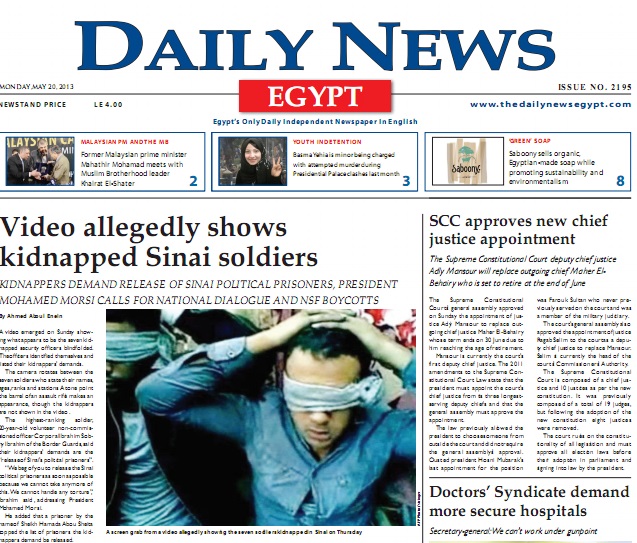CAIRO: A public opinion poll conducted by the Information Decision Support Center – affiliated with the Cabinet – recorded that 75.2 percent of Egyptians say corruption exists in the country with a prevalence of 66 percent.
“The public listed different forms of corruption, reads the survey. “74.9 percent of samples ranked bribes, freebies, and tips on top; followed by favoritism, embezzlement, and pocketing.
Based on a request by Prime Minister Ahmed Nazif, the IDSC distributed a questionnaire for the first time in Egypt among 14,000 samples nationwide to measure public perception of corruption in the country and of the government’s efforts to combat it.
The Cabinet gave the IDSC the green light to disclose results of the poll without explaining the reason or the purpose of conducting such a survey, leaving room for doubt and raising eyebrows about its credibility.
“I wouldn’t put much faith in this survey, said Magdy Sobhi, economist at Al Ahram Strategic Center for Political and Economic Studies. “The survey completely overlooked major [forms of] corruption and gave much emphasis to minor corruption; while the problem here in Egypt lies in both major and minor corruption.
Experts place corruption under two different categories. Minor corruption is when a citizen has to pay an extra commission or bribe someone to be granted one of their rights – this usually happens during the license registration process.
“Minor corruption cashes in on individuals and not the state’s wellbeing, explained Abdel Fatah El-Gibaly, economist at the center. “That form of corruption is often easy to combat through eliminating bureaucracy, empowering audit authority, as well as emphasizing transparency and free exchange of information.
Major corruption, on the other hand, refers to embezzlement and pocketing practiced by public influential figures in the country who make use of their leading positions to illegally profit from state-owned money or property.
According to the survey, the samples place major corruption between 40-65 percent, while minor corruption constitutes around 75 percent.
“The survey underestimates the extent of major corruption practiced in the country, Sobhi pointed out. “A survey that concludes that employees that receive bribery are mostly those in subordinate positions loses credibility. These employees are only imitating their superiors. Major corruption is always behind minor corruption.
Other economists voice the same opinion, adding that major corruption is a lot more dangerous than minor corruption, as it leads to exploitation of the country’s resources.
Forty percent of samples surveyed in the poll blame economic distress for the spread of corruption; while 27 percent blame it on social and cultural reasons, and 20 percent on managerial flaws.
The poll findings also show that 50.3 percent of the samples believe the government is serious about fighting corruption; while 24.9 percent do not find the government’s attempts credible.
Several financial experts equate corruption with terrorism and are calling on the government to issue an anti-corruption decree similar to the anti-terrorism one currently under discussion in parliament.
“People’s tendency to steal and embezzle declines when they know they are being watched. That requires appointing an audit authority totally independent from the state. One that has complete freedom to monitor any [figure] in the country under judicial supervision, stated Sobhi.
“To successfully achieve that, it will take a democratic government that truly acts on transparency.

